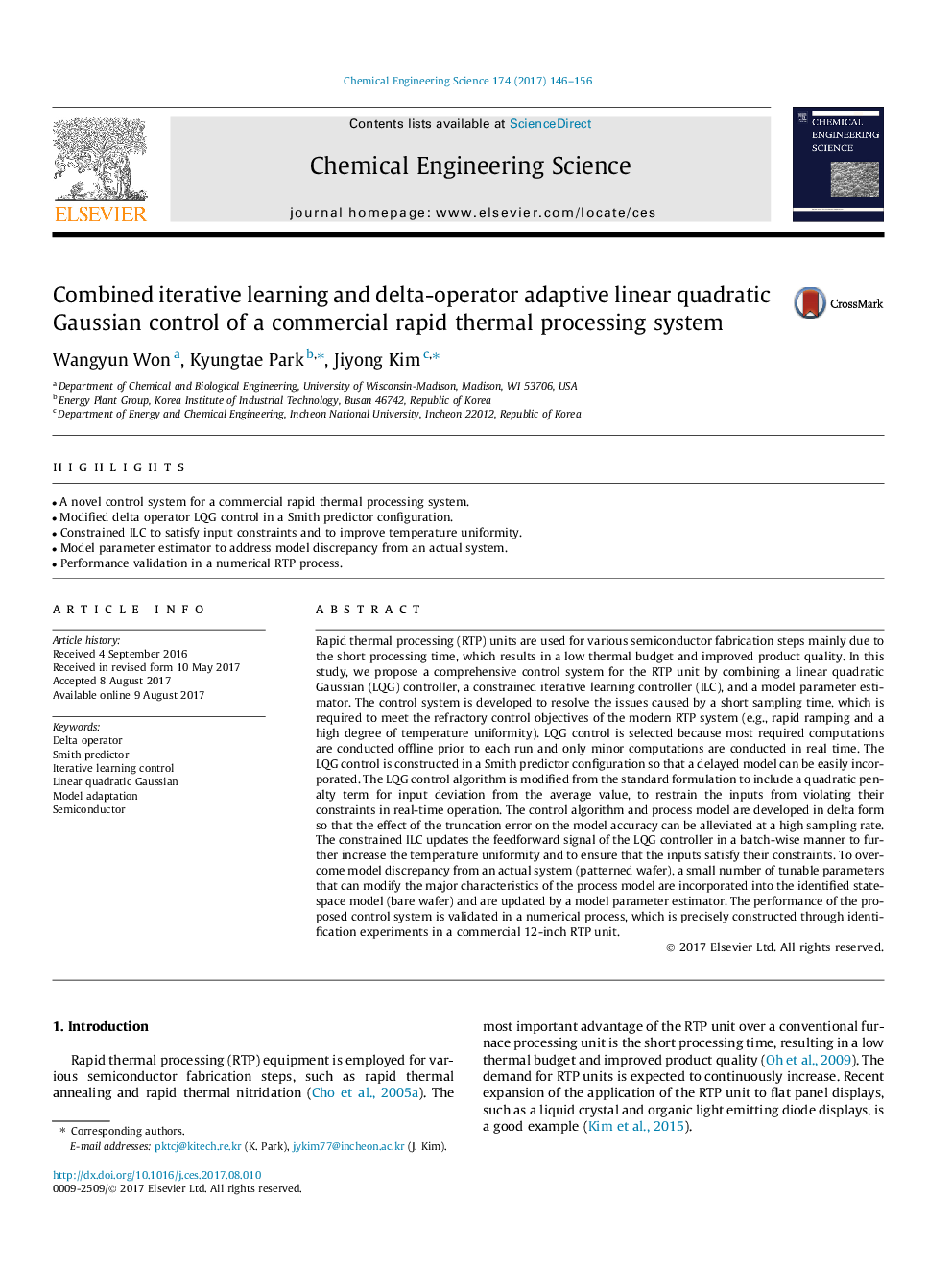| کد مقاله | کد نشریه | سال انتشار | مقاله انگلیسی | نسخه تمام متن |
|---|---|---|---|---|
| 6466886 | 1423245 | 2017 | 11 صفحه PDF | دانلود رایگان |
- A novel control system for a commercial rapid thermal processing system.
- Modified delta operator LQG control in a Smith predictor configuration.
- Constrained ILC to satisfy input constraints and to improve temperature uniformity.
- Model parameter estimator to address model discrepancy from an actual system.
- Performance validation in a numerical RTP process.
Rapid thermal processing (RTP) units are used for various semiconductor fabrication steps mainly due to the short processing time, which results in a low thermal budget and improved product quality. In this study, we propose a comprehensive control system for the RTP unit by combining a linear quadratic Gaussian (LQG) controller, a constrained iterative learning controller (ILC), and a model parameter estimator. The control system is developed to resolve the issues caused by a short sampling time, which is required to meet the refractory control objectives of the modern RTP system (e.g., rapid ramping and a high degree of temperature uniformity). LQG control is selected because most required computations are conducted offline prior to each run and only minor computations are conducted in real time. The LQG control is constructed in a Smith predictor configuration so that a delayed model can be easily incorporated. The LQG control algorithm is modified from the standard formulation to include a quadratic penalty term for input deviation from the average value, to restrain the inputs from violating their constraints in real-time operation. The control algorithm and process model are developed in delta form so that the effect of the truncation error on the model accuracy can be alleviated at a high sampling rate. The constrained ILC updates the feedforward signal of the LQG controller in a batch-wise manner to further increase the temperature uniformity and to ensure that the inputs satisfy their constraints. To overcome model discrepancy from an actual system (patterned wafer), a small number of tunable parameters that can modify the major characteristics of the process model are incorporated into the identified state-space model (bare wafer) and are updated by a model parameter estimator. The performance of the proposed control system is validated in a numerical process, which is precisely constructed through identification experiments in a commercial 12-inch RTP unit.
Journal: Chemical Engineering Science - Volume 174, 31 December 2017, Pages 146-156
